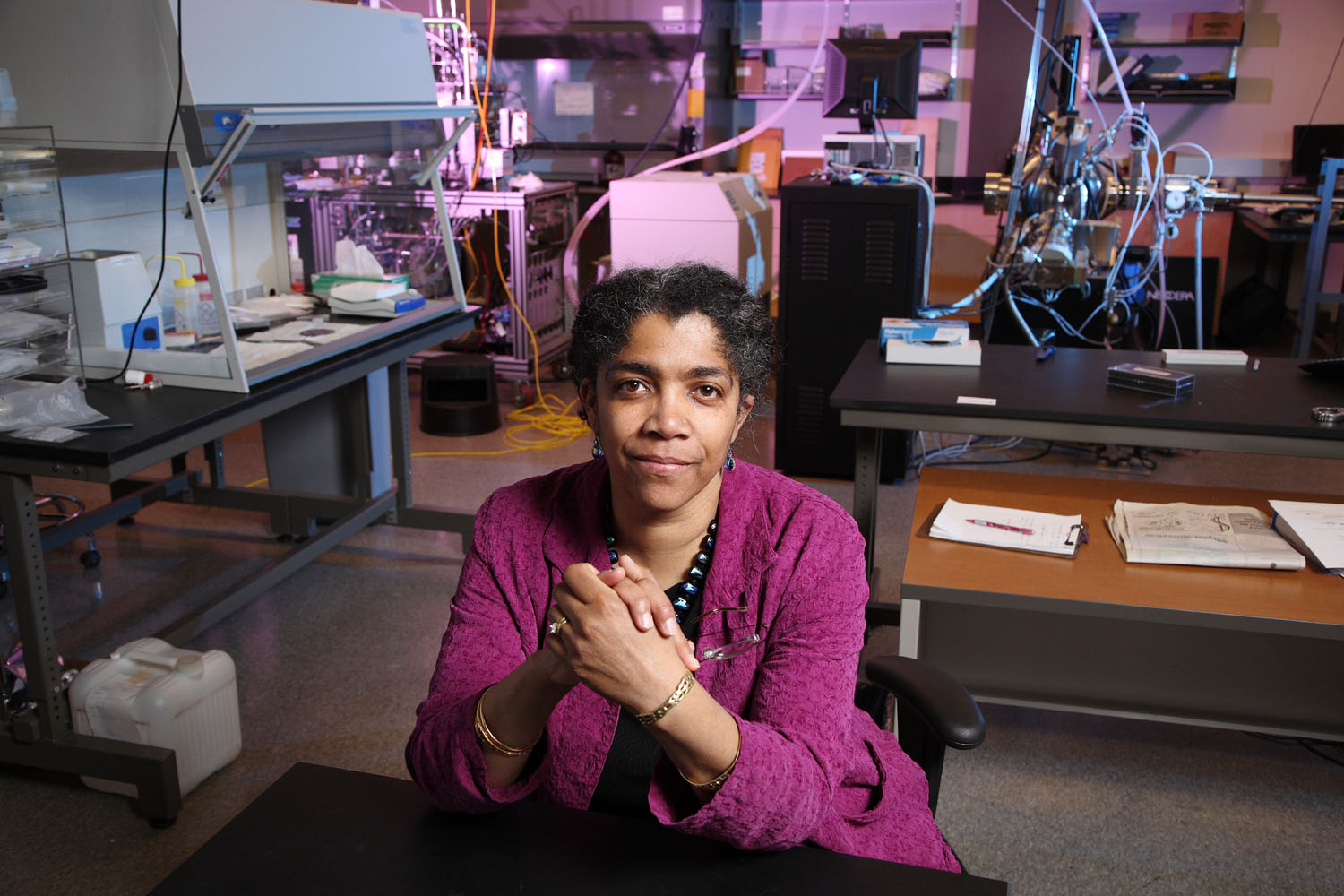June 18, 2008 — As Rosalyn Berne sees it, human beings have crossed an important threshold. Our mastery of fields like genetic engineering and nanotechnology has presented us with unprecedented power to create new forms of life and new materials, instead of simply modifying them. And when we modify our surroundings, our influence is exponentially greater than it ever has been. Consider our ability to effect climate change.
Berne worries that we may not have the wisdom to exercise these vast new powers ethically. "Our creativity is awe-inspiring, but it can be dangerous if it is not grounded by an understanding of our place in the world and the values that spring from that realization," said Berne, an associate professor in the University of Virginia School of Engineering and Applied Science's Department of Science, Technology, and Society.
In her classes, Berne challenges her students to take a close look at the world around them, rather than take it for granted, so that they can guide their actions accordingly. Last fall, she taught a course on the consequences of development on our limited supply of fresh water.
"Through our readings and discussion, students came to understand intellectually that water is a finite resource, but this knowledge was really empty," she said. "It was only when I asked them to live for a week on 13 gallons of water a day that the challenges we face really hit them." In Berne's view, this sort of exercise is especially critical for engineering students, who will be responsible for the next generation of technological breakthroughs.
Berne has also explored these issues with the current generation of nanoscientists. With funds from a Faculty Early Career Development Award from the National Science Foundation, she met with a distinguished group of nanoscientists over a five-year period to learn more about the technology they were working on, their lives and values, and the connections between them. These conversations were open-ended, unstructured and private.
One of the themes that emerged from these discussions is that the inexorable pursuit of innovation is motivated in part by a fairly pervasive sense of isolation and powerlessness. She found that people who had a sense of purpose and who believed their work had meaning were more deliberate about the technological outcomes they pursued.
Long fascinated by the work of writer Joseph Campbell, Berne is turning to the power of myth as a way to reconnect researchers to fundamental human truths. She has adopted science fiction to embody these myths. In addition to writing a novel in this genre, she has written a story that explores the social consequences of abrupt technological change.
"I chose science fiction because it has a unique capacity to bring to life the consequences of technology in a compelling way," she said.

Berne worries that we may not have the wisdom to exercise these vast new powers ethically. "Our creativity is awe-inspiring, but it can be dangerous if it is not grounded by an understanding of our place in the world and the values that spring from that realization," said Berne, an associate professor in the University of Virginia School of Engineering and Applied Science's Department of Science, Technology, and Society.
In her classes, Berne challenges her students to take a close look at the world around them, rather than take it for granted, so that they can guide their actions accordingly. Last fall, she taught a course on the consequences of development on our limited supply of fresh water.
"Through our readings and discussion, students came to understand intellectually that water is a finite resource, but this knowledge was really empty," she said. "It was only when I asked them to live for a week on 13 gallons of water a day that the challenges we face really hit them." In Berne's view, this sort of exercise is especially critical for engineering students, who will be responsible for the next generation of technological breakthroughs.
Berne has also explored these issues with the current generation of nanoscientists. With funds from a Faculty Early Career Development Award from the National Science Foundation, she met with a distinguished group of nanoscientists over a five-year period to learn more about the technology they were working on, their lives and values, and the connections between them. These conversations were open-ended, unstructured and private.
One of the themes that emerged from these discussions is that the inexorable pursuit of innovation is motivated in part by a fairly pervasive sense of isolation and powerlessness. She found that people who had a sense of purpose and who believed their work had meaning were more deliberate about the technological outcomes they pursued.
Long fascinated by the work of writer Joseph Campbell, Berne is turning to the power of myth as a way to reconnect researchers to fundamental human truths. She has adopted science fiction to embody these myths. In addition to writing a novel in this genre, she has written a story that explores the social consequences of abrupt technological change.
"I chose science fiction because it has a unique capacity to bring to life the consequences of technology in a compelling way," she said.
— By Charlie Feigenoff

Media Contact
Article Information
June 18, 2008
/content/berne-urges-ethical-explorations-technological-change

